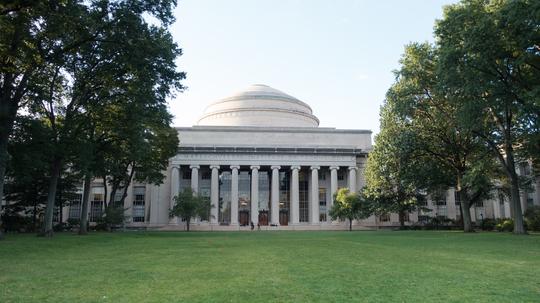
Pitch contests on Boston’s campus circuit always have a decent showing of student startups, but those held at MIT are next level (as one might expect). This year’s Accelerate pitch competition on Wednesday, February 10, was no exception. It’s part of the school’s 100K Entrepreneurship Competition series and, while this specific event wasn’t for the big bucks (the Launch pitch competition is where ventures actually duke it out for 100 g’s), the winner - a medtech startup called Astraeus Technologies - received a $10,000 prize.
Astraeus Technologies won across the board. The startup secured the Grand Prize Danny Lewin Award, which is named in honor of the Akamai co-founder who died on American Airlines Flight 11 during the September 11 attacks. It also won the Audience Choice Award, landing them an additional $3,000.
The double-win was well deserved. After Astraeus Technologies’ pitch, the judges were silent for a solid thirty seconds. What’s so impressive? The team has developed a small, inexpensive card - called the L-card - that people breathe on to detect lung cancer earlier and more accurately than current screening methods.
Individuals with lung cancer breathe out a particular gas that other people do not. The L-card and its accompanying smartphone app would be able to detect the presence of this gas on affected patients’ breaths more effectively, saving lives.
Right now, the most common method to screen for lung cancer is the CT scan, which presents more cons than pros. For one thing, CT scans are super expensive for hospitals and have to be booked well in advance, so only a fraction of patients at risk of lung cancer receive the screening they need. They’re also fairly inaccurate and cannot detect lung cancer until it has progressed a decent amount, so it may be too late when doctors catch it. And on top of it all, the radiation from CT scans can be dangerous and actually make people more susceptible to cancer. That’s the exact opposite of what cancer screening should do.
With the L-card, there will be fewer screening barriers. More at-risk patients will have the opportunity to undergo screenings and won’t be put at further risk for doing so. And the more people screened, the better the chance that doctors have of finding lung cancer while it’s more treatable.
Looking ahead, Astraeus Technologies is working on getting FDA approval to do clinical trials for the L-card. The team will be translating the technology to other types of cancer and diseases. Patients with breast, skin, colon and other cancers also emit a specific type of gas that could be easily detected and treated early on.








